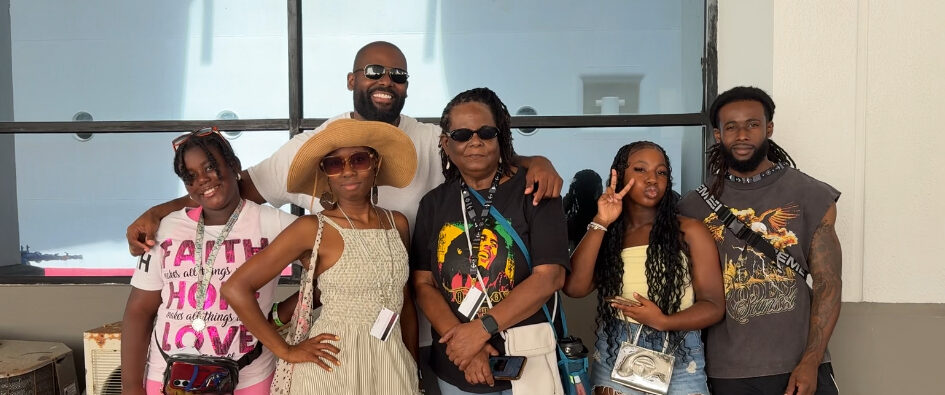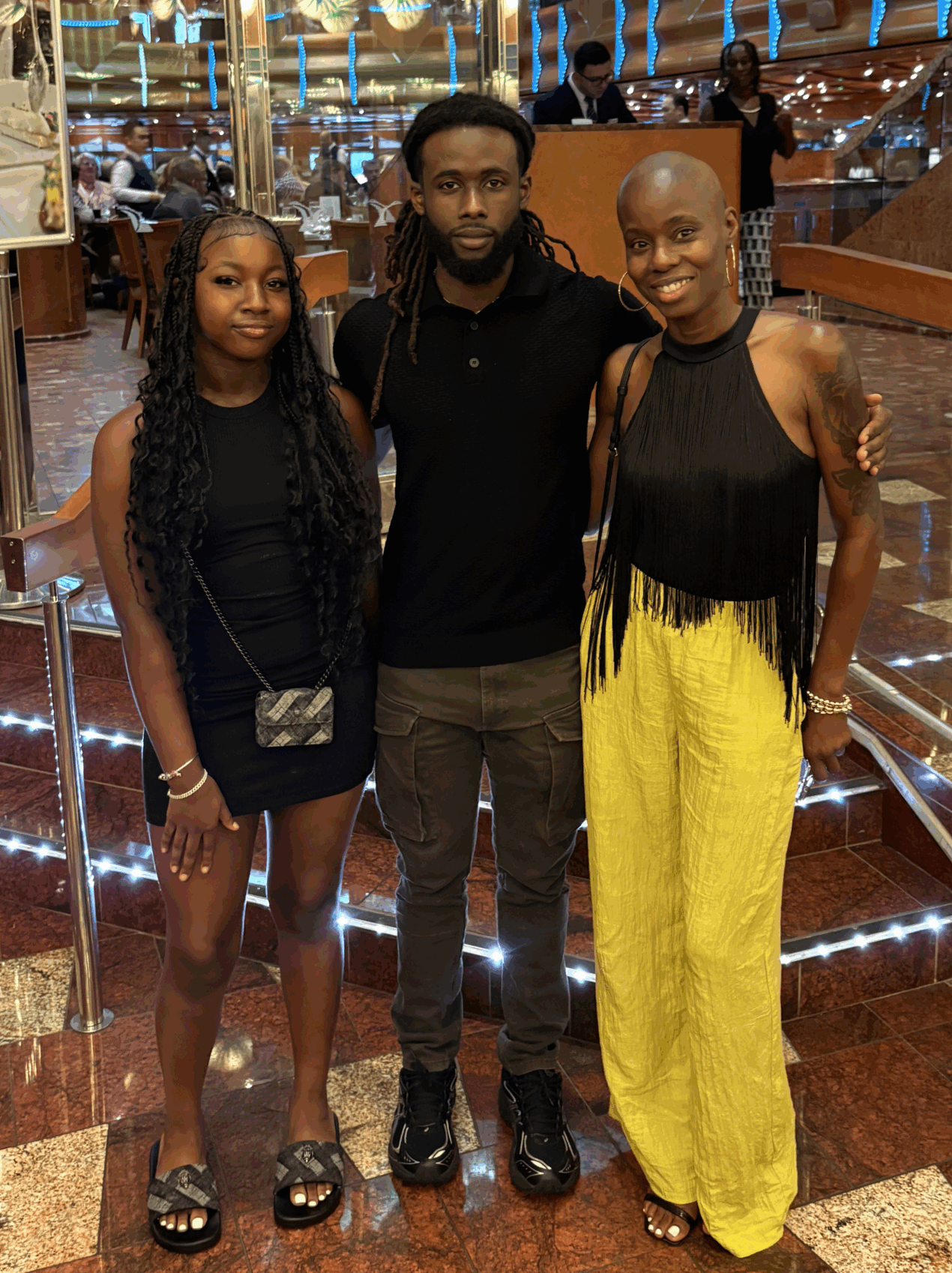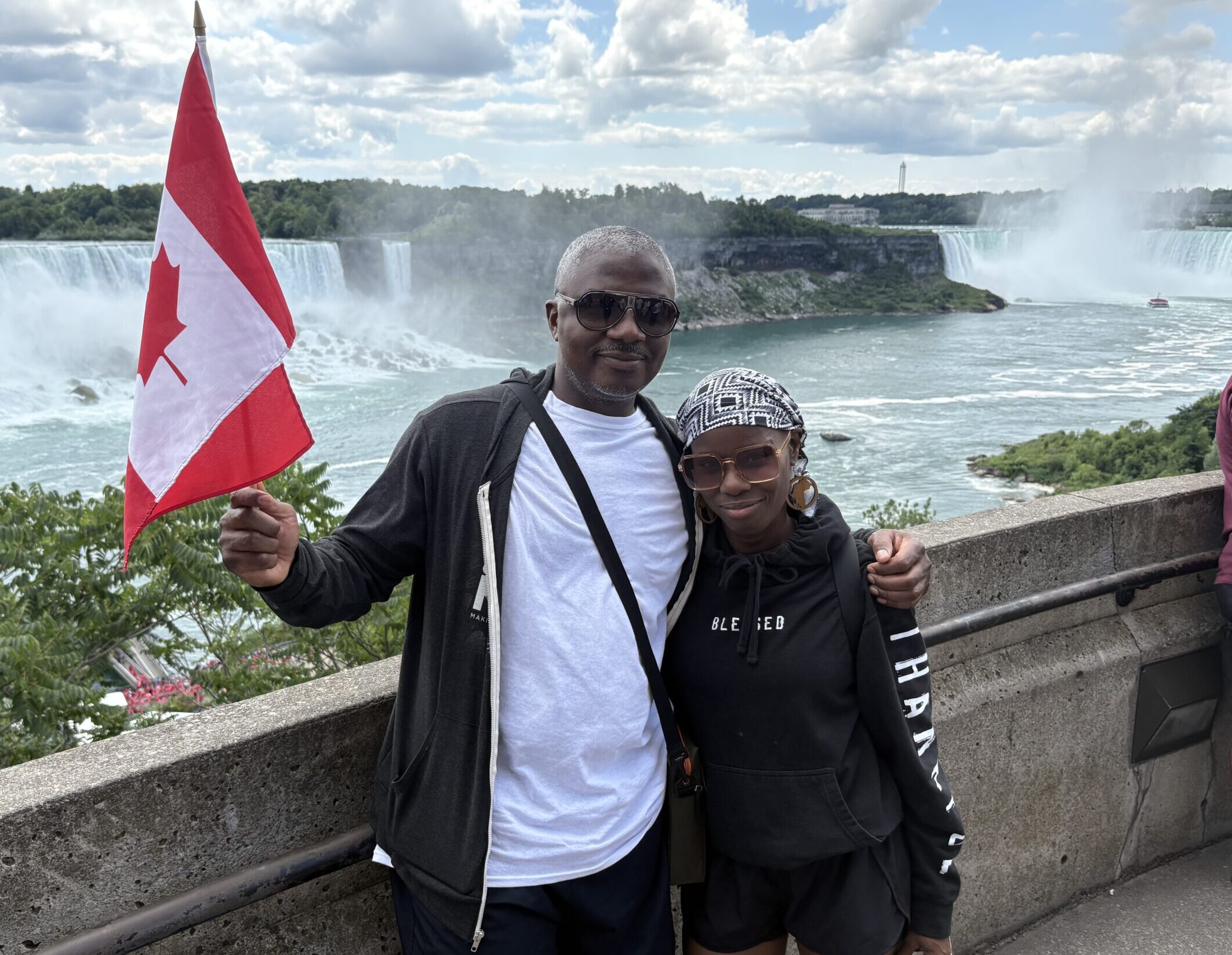
Kirah D. lives in Philadelphia with her 2 children, ages 14 and 26. She is an entrepreneur with a small business. In her spare time, Kirah loves to cook and try new recipes, do DIY projects around her home, and travel with her children and family.
When Kirah first started experiencing a burning pain in her back, she never imagined it could be cancer. “It would come and go,” she recalls. “I mentioned it to my doctor, but he told me I was too young for anything serious. I believed him.”
It wasn’t until a persistent nighttime cough disrupted her sleep for over a year that she pushed for more answers. An initial X-ray suggested pneumonia, which came as a relief. “I thought, okay, finally, this explains it.” But the antibiotics didn’t help, and the cough continued. Finally, another doctor ordered follow-up scans, and a pulmonologist ran more tests. Even then, no one suspected cancer.
It wasn’t until a needle biopsy in August 2023 that Kirah received a diagnosis: non-small cell lung cancer. Initially, they believed it to be stage 2 (II), but further scans confirmed it was stage 4 (IV) with a KRAS mutation.
“I was shocked,” she says. “I don’t smoke. I’m active. I look healthy. I never thought lung cancer was even a possibility.”
Treatment, trials, and tough choices
Kirah started treatment right away. Her team took what they described as a “kitchen sink” approach, giving her 2 different chemotherapies and 2 immunotherapies. Unfortunately, after 6 months on this regimen, her scans showed progression.
She then joined a clinical trial, but the side effects were overwhelming. “My blood pressure skyrocketed. I was in and out of the ER. They just kept giving me more medications, and none of them were working. I finally decided to drop out of the trial before it did more harm than good.” She left another trial in June 2025 because of similar issues with side effects.
Since then, Kirah has focused on her overall wellness, embracing a mostly plant-based diet, juicing daily, and exercising regularly, even if it’s not her favorite activity. “I can’t stand working out,” she laughs. “But I feel so much better when I do.”
A new kind of routine

For now, that holistic approach has helped her feel strong. She still battles symptoms like mucus buildup, occasional back pain, and mild shortness of breath, but she’s been able to live a full life.
“I feel good most days,” she says. “I’m cooking separate meals for myself and my kids, going to the farmer’s market all the time, trying to keep up with everything. It’s a lot, but it’s worth it.”
She’s also considering what treatment might look like again. “I know I may need to do something, but I don’t want to feel worse for no reason. That’s the hardest part: finding a treatment that will help my cancer without hurting me. I keep saying, cancer is just getting in the way of my life.”
Support that matters
Kirah’s family, including her children, ages 14 and 26, know about her diagnosis, but because she doesn’t appear sick, they don’t always understand the full weight of what she’s navigating. “They just see me going to appointments and still living life because I look and feel so healthy. I’m grateful for that, but sometimes it makes it harder for people to take it seriously.”
She’s leaned heavily on her partner and her best friend, as well as a tight-knit group of women with lung cancer who she met at GO2’s Lung Cancer Voices Summit. “Talking to people who really get it helps a lot. The conversations are just different with someone who understands what you’re going through. It’s an instant stress relief.”
Rooted in faith and hope
Before cancer, Kirah didn’t consider herself religious. When she was diagnosed, that changed. “I needed to lean on something bigger than me. Now, I give my worries to God. That’s where I get my strength.”
Hope has also played a central role in how she copes. Early on, she read Radical Remission, a book that gave her the encouragement to take charge of her health and mindset. “That book made me feel like I could beat this. It reminded me that it’s not over.”
Stories of long-term survivors have given her perspective too. “Hearing about people who’ve lived with this for years helps. It keeps me focused on what’s possible.”
Advice for the newly diagnosed
 Kirah knows how overwhelming those first days after diagnosis can be. “At first, I was Googling everything, and it was terrifying. My advice now? Stay hopeful. Keep a positive mindset. And surround yourself with people who support you.”
Kirah knows how overwhelming those first days after diagnosis can be. “At first, I was Googling everything, and it was terrifying. My advice now? Stay hopeful. Keep a positive mindset. And surround yourself with people who support you.”
She also encourages others to find balance between conventional medicine and holistic care, between rest and movement, between fear and faith. “I’m not saying I have all the answers,” she says. “But I wake up every morning and I can breathe. I can get out of bed. I can enjoy my life. And I’m really, really grateful for that. I try to hold tight to that gratitude.”
If you have been diagnosed with lung cancer, you are not alone. Contact our HelpLine for free one-on-one support, treatment and trial information, referrals, and more. Call 1-800-298-2436 or email support@go2.org today.

Leave A Comment